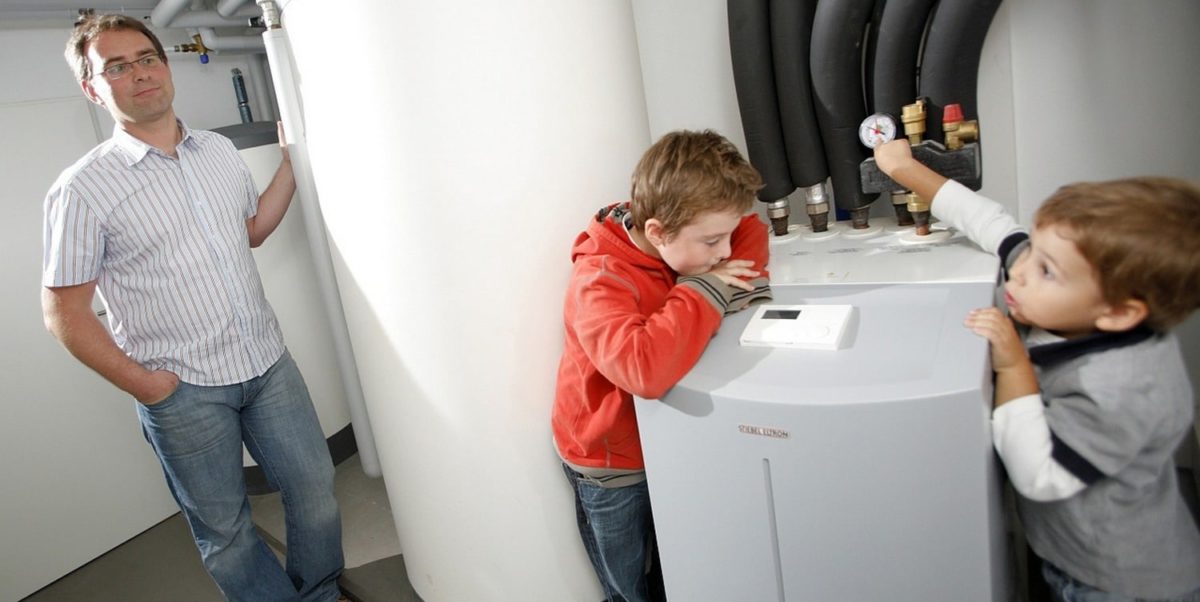From pv magazine Germany
How long does it take for investments in the personal energy transition to pay off financially? And how does the climate benefit from components such as photovoltaic systems, storage and heat pumps? Eon and Aachen University (RWTH Aachen) have now presented a study on these issues.
Researchers examined various locations, house types and household profiles and measured the time it takes for the costs of purchasing and operating climate-friendly technologies to fall below those of new gas heating systems, representing the break-even mark. They assumed that the buildings in question had not been extensively renovated. In addition, the experts calculated the extent to which operating costs and CO2 emissions would fall.
PV often make heat pumps more profitable
The break even point occurred most quickly in a terraced house built in 1990 in Essen, inhabited by four people. A heat pump becomes more economical here than a gas heating system after 10 years. If a PV system is also installed, the break even in similar home scenarios is delayed by around a year. Another year is added on top if the households also install battery storage systems.
In a single-family house built in 1980, on the other hand, a PV system shortens the break even time. In all scenarios considered, the combination of heat pump and PV leaves the gas heating system behind after 12 years. Without solar support, it is 14 to 15 years, and with additional storage, 13 years.
Even in a single-family home built in 2005, the heat pump performs better when coupled with a PV system, with the break-even point at 13 to 14 years. Without a solar system, it is 15 to 16 years. With additional battery storage, the break-even point is 13 to 14 years.
Heat pump significantly reduces annual energy costs
The annual energy costs for a single-family home built in 1980 with gas heating are on average 6,393 euros and with a heat pump 4,521 euros. With a PV system, they fall to 3,139 euros. If a battery storage system is added, the figure is only 2,870 euros.
In a terraced house from 1990, the average costs are 2,870 euros (gas heating), 2,068 euros (heat pump), 1,171 euros (heat pump + PV) and 904 euros (additional storage).
In a single-family house from 2005, the costs are 2,947 euros (gas heating), 2,126 euros (heat pump), 1,045 euros (heat pump + PV) and 815 euros (additional storage).
Less than half a ton of CO2 emissions per year
The spread in CO2 emissions over a period of 20 years is similarly large. In a single-family house from 1980, the average is 162 tons (gas heating), 36 tons (heat pump), 30 tons (heat pump + PV) and 26 tons (additional storage).
In a terraced house from 1990, the average is 64 tons (gas heating), 17 tons (heat pump), 12 tons (heat pump + PV) and 10 tons (additional storage).
In a single-family house from 2005, the experts come up with 66 tons (gas heating), 17 tons (heat pump), 12 tons (heat pump + PV) and 9 tons (additional storage).
Balcony solar often pays for itself in three to six years
Researchers also examined the economic efficiency of balcony solar systems. They came to the conclusion that in many cases the systems pay for themselves within a few years, depending primarily on the installation angle and orientation. With a south-facing orientation and the optimal angle, the system pays for itself on average after three years and three months.
If households manage to use all of the electricity generated themselves by shifting consumption, the period in this case is reduced to around two and a half years.
Ignorance about the profitability of renewable energy systems
In addition, Eon conducted a survey of 5,000 people to determine consumers' opinions on the profitability of investments in heat pumps, PV and storage. It shows that the respondents mostly assume a profitability that is lower than that achieved in practice.
“Many people underestimate how quickly energy solutions pay off financially, and there is also often ignorance among the population on this topic,” explained Filip Thon, CEO of Eon Energie Deutschland. “We want to encourage people to think about their personal energy transition and therefore want to provide reliable facts with our study.”
This content is protected by copyright and may not be reused. If you want to cooperate with us and would like to reuse some of our content, please contact: editors@pv-magazine.com.



We really need to stop counting on people’s ability to do things like math, thinking and caring.
We need to start a government fund that contracts for installations at a wholesale price, sell them to homeowners at a 25% mark up and then guarantee repayment in a set period of time.
The 25% markup can fund any losses from the guarantee.
This would reduce the upfront cost, give buyers a hard number to make the decision, self fund and generate an actual profit for the government. It would also double the demand because the profiteering and lack of information is stopping way too many people from doing this.
If I was in charge, I’d go even further and just set up a fund that would agree to install everything and then charge a fixed price for energy in the next 10 years. It would have to include a clause that left a balloon payment at the end for extra usage because some people have situations that change like added family and because some people are just really sleazy and consider stealing from taxpayers or groups trying to make the world a better place as a viable strategy for success.
Here in Canada we get from eight hours to no hours of sunlight for several months a year in average winter temperatures of -10⁰C and lower.
If your “study” is not indexed to latitude then it’s climate science.
Not worth waiting, I’ll stick to gas heat